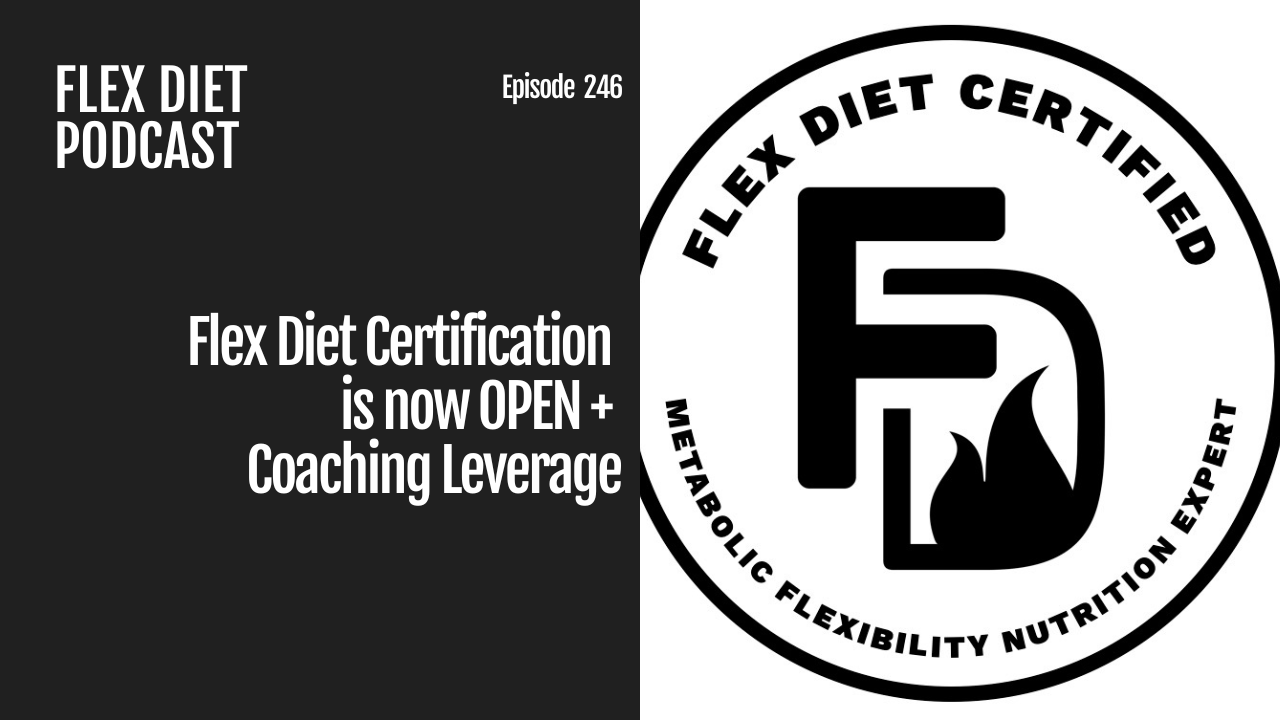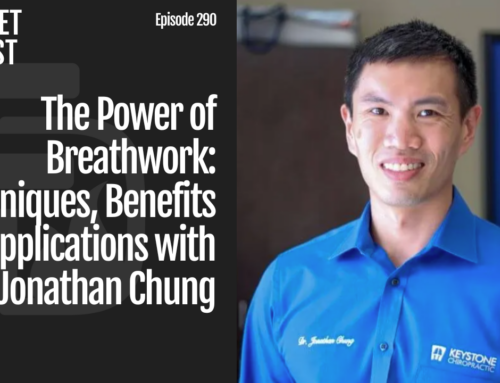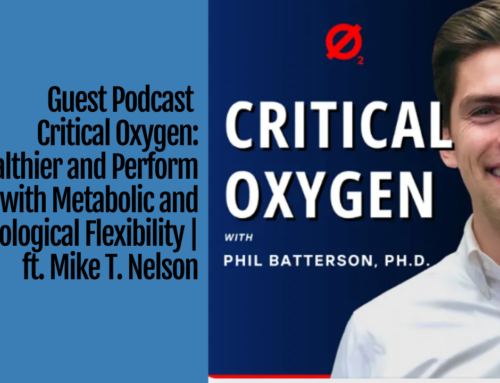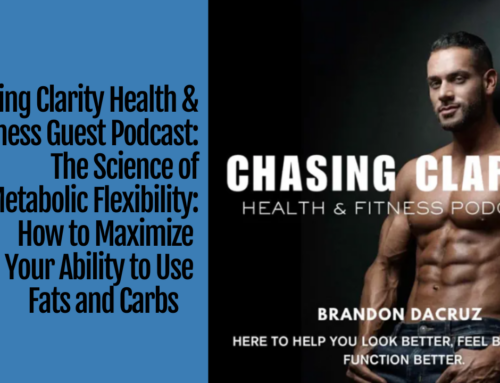Join me, Dr. Mike T Nelson, as I unveil the transformative power of coaching leverage and how it can dramatically amplify your clients’ muscle performance and body composition results. Listen in as I unravel the complexities of metabolic flexibility and flexible dieting, core principles embedded in the FlexDiant certification, which is now open for enrollment.
Go to https://flexdiet.com to enroll today. The certification is only open a few times a year, so grab your spot while you can. Enrollment closes at midnight on Monday, Jan. 22, 2024. For all your electrolyte needs, check out https://drinklmnt.com/Mike Nelson.
Episode Chapters:
- [2:49] New podcast sponsor LMNT
- [4:40] The concept of coaching leverage
- [13:21] How to enroll in the Flex Diet Cert
Rock on!


Dr. Mike T Nelson
PhD, MSME, CISSN, CSCS Carrick Institute Adjunct Professor Dr. Mike T. Nelson has spent 18 years of his life learning how the human body works, specifically focusing on how to properly condition it to burn fat and become stronger, more flexible, and healthier. He’s has a PhD in Exercise Physiology, a BA in Natural Science, and an MS in Biomechanics. He’s an adjunct professor and a member of the American College of Sports Medicine. He’s been called in to share his techniques with top government agencies. The techniques he’s developed and the results Mike gets for his clients have been featured in international magazines, in scientific publications, and on websites across the globe.
- PhD in Exercise Physiology
- BA in Natural Science
- MS in Biomechanics
- Adjunct Professor in Human
- Performance for Carrick Institute for Functional Neurology
- Adjunct Professor and Member of American College of Sports Medicine
- Instructor at Broadview University
- Professional Nutritional
- Member of the American Society for Nutrition
- Professional Sports Nutrition
- Member of the International Society for Sports Nutrition
- Professional NSCA Member
[00:00:00] Dr Mike T Nelson: Welcome back to the Flex Diet podcast. I’m your host, Dr. Mike T. Nelson. On this podcast, we talk about all things to increase muscle performance and improve body composition all without destroying your health in a flexible framework. And today I want to discuss the concept of coaching leverage, what exactly that means.
[00:00:28] And how you can use it for yourself or especially if you’re a coach or trainer to decide what interventions you should do with your clients. I’ll give you a bunch of examples there. Wanted to let you know that the Flex Diet Certification is open once again. Right now it’s only open twice a year for a week.
[00:00:53] If you’re listening to this today, which is January. 15th, 2024 Monday, it will be open for one week until midnight, PST, Monday, January 22nd, 2024. If you’re looking for a way to increase your ability to work with nutrition and to improve body comp performance, add muscle for yourself or especially for your clients, this is the certification for you.
[00:01:26] As you know, I’ve been listening to this podcast, I did my PhD actually in the topic of metabolic flexibility. I started that work, oh man, like probably 14 years ago now, seems kind of crazy. And that is the core concept in the Flex Diet Certification. Concept of metabolic flexibility, and that’s mashed up with flexible dieting.
[00:01:49] And what I wanted to do was create a course. Certification that goes through the high level viewpoint, which is metabolic flexibility and flexible dieting, but then has eight specific interventions with lots of details for each one. There’s a one hour lecture on each one, and then we have 40 different explicit action items, so you’ll always know exactly what it is you need to do next for yourself, or especially if you’re using this with clients.
[00:02:22] And what I really like about it, obviously I’m biased because I created it, is you get the overall concept viewpoint, you get the details based on physiology, and you still get to know exactly what to do with clients, what is the next step. And one of the key components of that is the concept of coaching leverage, which we’ll get into in just a minute here.
[00:02:49] Also wanted to announce that the great people at LMNT are helping to sponsor the podcast. This is actually directly through my affiliate link. So I do some affiliate work for them. I’ve literally been using this supplement since they started. And of all the supplements I use, I literally use this one probably more than anything else.
[00:03:14] I usually have one packet in one liter of fluid in the morning, and then at least one in the afternoon. The biggest thing I’ve noticed is just more consistent energy levels. I never realized that I might have been low on a fluid and electrolytes before. And of course, if you are training in the heat, we’ve been down to Costa Rica, many warm places, several times, and surprisingly, it does actually get hot and humid in Minnesota here in the summer.
[00:03:43] It has been a huge help on that. And the best part is it tastes really good without any funny stuff in it. So go to drink LMNT. com forward slash Mike Nelson, and we’ll put all the links down below here too. So it’s drinkLMNT. com/MikeNelson and that is my affiliate link and you will also get a Free sampler pack, which is great.
[00:04:15] I’ve got some super great flavors for the winter. I like the Chocolate with caramel and then the non winter flavors my favorite right now It’s a toss up between grapefruit or raspberry. So check them out great product. I really love it I’ve been using it for quite a while I highly recommend it. We’ve got a link below here also.
[00:04:40] So back to the concept of coaching leverage. What I did when I designed the Flex Diet Cert is I wanted it to be a little bit more on the physiology side. Since most of the questions I got were related to different aspects of physiology. And how do you use that for more muscle, body comp, and performance.
[00:05:02] When I designed the system, I baked in sort of the psychology of it, because there is no question that when you’re coaching clients and people, the psychology portion is a massive portion. In fact, I’ve often joked that I, I shouldn’t have been an exercise physiologist and looked at metabolism. I should have been a psychology major and probably would have made my earlier career a lot easier.
[00:05:27] So coaching leverage is simply the physiology or the physiologic response times the client’s ability to change. So what this does is it gives you a good marker for both of them, because at the end of the day, you could have something that rates very high on moving the needle closer to their goals, but if it’s impossible or extremely difficult for the client to actually do said item shocker, they’re not really going to do it.
[00:05:58] And this is true across the board with any interventions. So the problem I was trying to solve was, I ran into the issue of only equating the physiologic response to the things that I was doing with clients. So an example I’ve given before, which I’ll repeat here, is talking about sleep with clients.
[00:06:20] Sleep is very important. We can run down the list of all the things that it helps with. Pretty much almost everything that we’ve studied so far from Glucose regulation fat use, body comp, blunting appetite, recovery, down the list. They’re extremely beneficial for a whole host of things that are helping clients be better and helping performance and body comp.
[00:06:46] However, when you’ve actually worked with clients, what you realize is yes, there are things you can do to increase the quality of their sleep, and yes, you should do those things. It is well worth the time and effort. But if Mary Muffintop is only sleeping five hours a night, at some point, she’s probably going to need more sleep.
[00:07:09] Unless she’s a rare Dektu mutant, which there’s almost very, very few of those people running around, who can legitimately get very little sleep and do well. Every client thinks they are one of them, but I have yet to find one that actually is. So yes, you should increase the quality of her sleep, but at some point, five hours just isn’t going to cut it.
[00:07:32] You know, shocker, most people need seven to eight hours a night of sleep. I know my friends Juliette and Kelly Sturette were telling me that they had posted an Instagram on this, based on their great book, which I would highly recommend, Built to Move. And we’re recommending that people get 8 hours of sleep a night.
[00:07:53] And they got lots of really horrible comments about how people were really mad at them about that. But, that’s what the data currently says. And, you know, for myself and some athletes I’ve worked with, that might be 9 or 10 hours a night, which I know seems like complete, utter heresy. The point being that there’s a huge physiologic benefit to sleeping more.
[00:08:15] The downside is, again, going back to the client’s ability to change, or kind of more the psychology side, at some point you can only increase quality so much, and you just physically need more time in bed. And most of the time this came down to a discussion of, well, you’re not putting your kids up for adoption, you’re not changing your job, you have other responsibilities, you’re training on top of this, plus errands.
[00:08:43] And the one to two hours you get to chill and watch Netflix in the evening. Oh, don’t do that because my trainer said I’m not supposed to. I should just go to bed. Like, good luck trying to get someone to do that. Some people might, but most people probably won’t. And so then you have this kind of battle going back and forth, and that usually doesn’t end well.
[00:09:05] So in terms of coaching leverage, sleep ended up being, out of the eight interventions, ended up being number eight. And it wasn’t because of the physiologic response. If we do a one to 10 scale on the physiology, heck, I’d probably give sleep maybe a nine or a 10 on a one to 10 scale of a co client’s ability to change, probably a one or a two, right?
[00:09:29] So if you have a, let’s say, we’ll be gracious, we’ll give it a two, and we’ll say that physiology is a nine, so nine times two is 18. Pretty darn low. Compare this to protein. And most people, especially who are trying to improve body composition or only eating maybe 40 grams of protein a day, not per meal.
[00:09:51] When you explain to them that they can eat almost like four times that amount of protein, they can eat more of a specific macronutrient or foods that are high in protein, and lose weight, and most of the time improve their performance and add muscle, they’re kind of shocked because they expect that they’re just supposed to slash all the calories out of their diet.
[00:10:12] And you’re telling them they can eat more of something that will also help keep them full, so they are more compliant and doesn’t feel as miserable. A lot of times, that is kind of shocking to them. Again, to people in the industry who’ve been around, probably nothing new there but getting people to eat more protein does take some work, does take a little bit of education, which we go over in the Flex Diet Certification, but most people are pretty much on board with doing it.
[00:10:40] And I’ve noticed that the intervention of doing more protein is way light years ahead of trying to get someone to sleep more. So even if we say protein has a little bit less. physiologic benefit. Let’s give it an eight. I would argue it’s still very high, but the client’s ability to do it is extremely high.
[00:11:01] I would give it probably an eight or a nine out of all the things we’re going to rate. So eight times nine, seventy two, way higher than the sleep of, we’ll give it graciously an eighteen. So what I did in the course is I laid out the eight different interventions and then they’re all ranked on coaching leverage.
[00:11:23] And shocker, as you figured out, number one is dietary protein. So the first intervention you will go through in the Flex Diet Cert once you enroll is learning about protein and the benefits of it, how it’s related to flexible dieting, metabolic flexibility, and you will have five explicit action items of how to get clients or yourself to eat more protein.
[00:11:47] So you will know exactly what you need to do with it. And it’s sort of like rigging the system in your favor, like if the client is more willing to do that and it’s moving the physiologic needle, i. e. they’re doing the thing and it is getting them closer to their goals by a significant margin, of course, you would want to start with the things that are easier.
[00:12:10] And what I found is then by the time you get to something like sleep, which is literally number eight of the eight interventions. You have a fair amount of capital, so to speak, or social capital, or trust, or whatever word you want to use with it, and they’re actually more willing to listen. They’ve done a lot of the other bigger items, which has gotten them closer to their goals, and they are willing to kind of dig into the weeds and possibly change a few more things.
[00:12:38] However, starting there, I find, is just a big battle, and not really worth it, in my opinion, at the end of the day. So the concept of coaching leverage is baked into the Physiologic Flexibility Certification. The 8 interventions are ranked then from 1 to 8. With the most coaching leverage items are number 1.
[00:12:59] So number 1 is protein, and number 8 on that list is actually sleep. And the other ones are ranked in between. Everything from exercise to meat fats, carbohydrates, fasting, etc. So, just wanted to cover that today for you. The idea of coaching leverage, which you can actually go out and apply right now.
[00:13:21] Of course, I outline all of this in the FlexDiet certification, which I would love for you to enroll in or get more information. But even if you don’t, you can still take that information, create your own system and apply it that way. So for all the information, we will put a link you can just go to flexdiet.
[00:13:39] com. If it is between now, January 15th, 2024 and January 22nd at midnight, 2024 that link will automatically go to a page that has all the information of the Flex Diet Certification as it is open now. If you go there after this point you will find a wait list for when it will open again. Not sure of the exact date when I will have it open again, but it’ll probably be at least Three to six months or longer before it opens again.
[00:14:10] So go to flexdiet.com. I’ll have all the information there. If you have any specific questions for me about it You can email me directly or hit me up on the social somewhere I’ll try to get back to you as soon as I can. So thank you so much really appreciate it Check out flexdiet.com and for all your electrolyte needs, check out drinklmnt.com/MikeNelson. Thank you so much for listening, greatly appreciate it, and I’ll talk to all of you very soon.















Leave A Comment